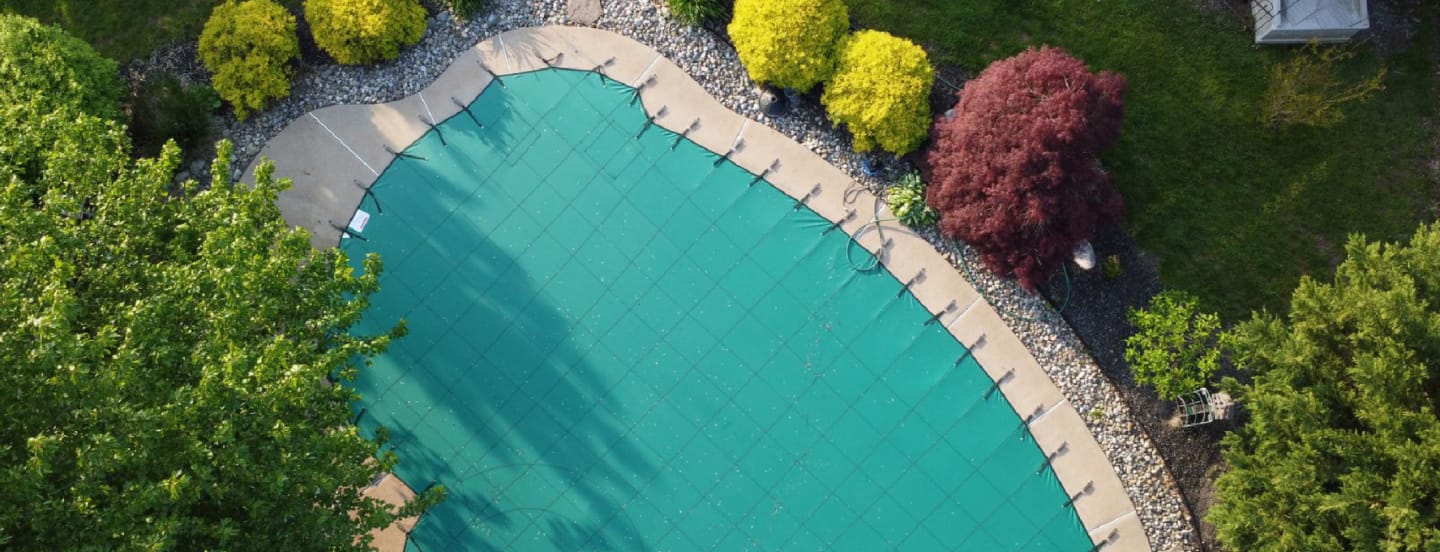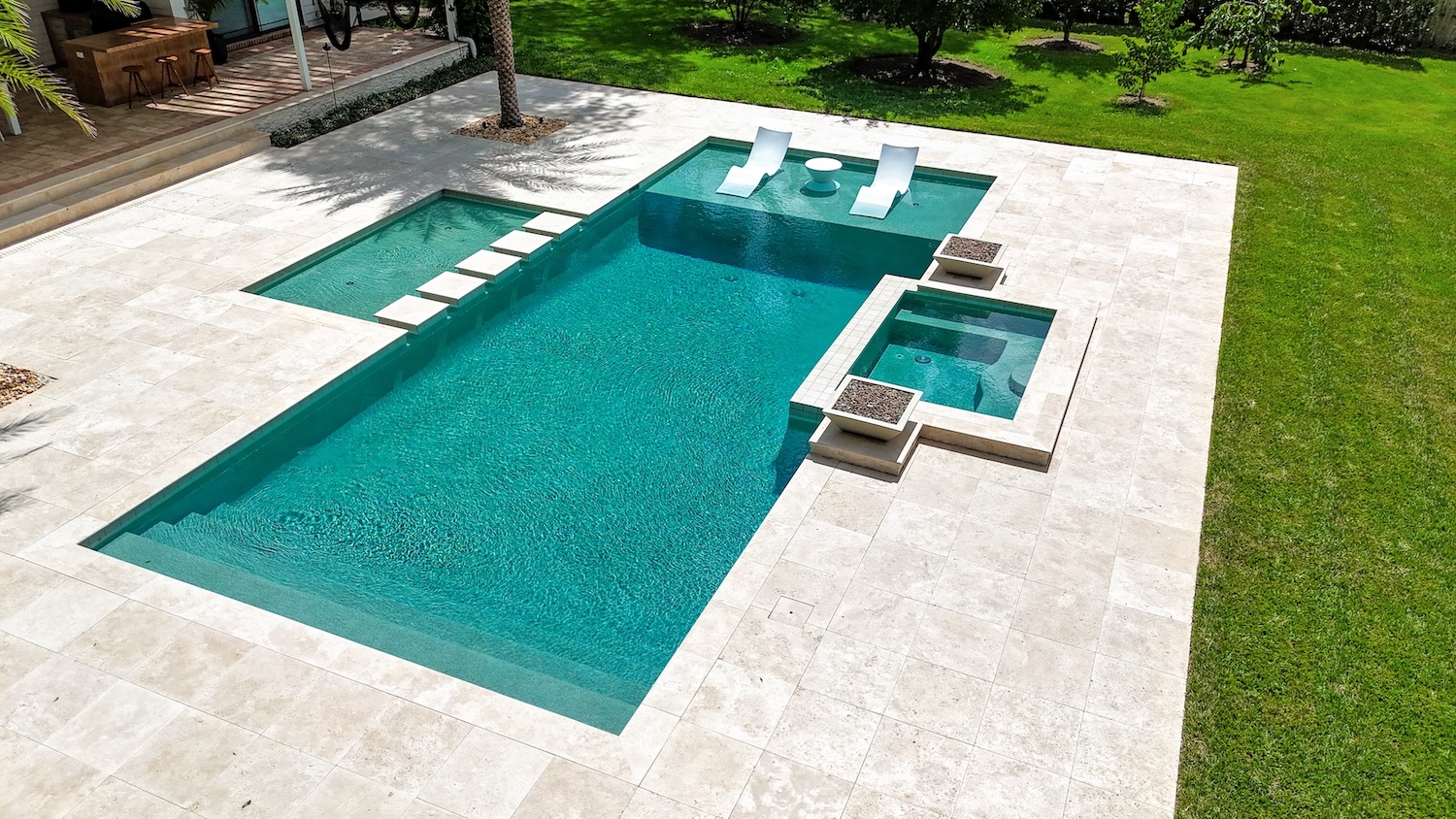Properly closing your pool during cold weather is an important part of prolonging your pool’s interior finish, tile work, and filtration equipment. It can also save you a lot of time and money when you are reopening the pool, as an improper closing can cause problems to develop and cause damage that will have to be fixed.
We suggest hiring the professionals at Anthony & Sylvan to complete the pool closing process, as it can be tricky, and if done improperly, can do more harm than good.
Get Started
Most pool owners close their in-ground pool in late summer or early fall. Look at the long-range weather conditions for the next few months when considering closing your pool. Pool water needs to be consistently below 55 degrees Fahrenheit to help prevent algae growth.
Once you’ve determined when you will close your pool, start with these basic steps then call the pool closing experts at Anthony & Sylvan to finish the job:
Clean the Pool
Remove everything that’s not part of the pool, such as ladders, pumps, and hoses. Skim the water and remove all debris from the pool’s floor, then vacuum and brush all the surfaces to help prevent staining. This will make your opening in the spring much simpler and take less time.
Adjust Your Water Chemistry
Check and adjust the pH, alkalinity, and water hardness levels to help prevent corrosion while your pool is closed for the winter. You will also need to shock your pool with chlorine, then add in a winter algaecide once the chlorine levels have returned to normal.
Lower the Water
Freezing water can damage or ruin the mechanical components of your pool equipment. Drain the water according to the pool cover you are planning to use. For a mesh cover, the water should be 6-8 inches below the skimmer opening. For a solid floating cover, the water only needs to be 2-4 inches below the skimmer opening.
Cover it Up
It’s important to choose a pool cover that fits your pool well and does not leave open cracks for leaves or debris to fall in. Mesh covers are often very tight fitting, while floating covers may let some things through that will have to be removed later. Use water bags or aquablocks to ensure your pool cover is fitted as tightly as possible.
Safety is another thing to consider. Depending on the traffic around your pool during the winter months, you may want to consider getting a pool safety cover to keep your family and friends safe.
Leave the Rest to the Pros
Your local Anthony & Sylvan Pool Supply Store can assist you with getting the correct chemical balance and choosing the right pool cover for you. We also offer professional winterizing service to ensure that everything is done properly.




